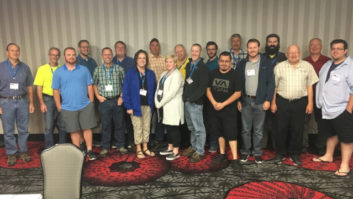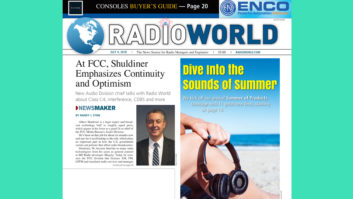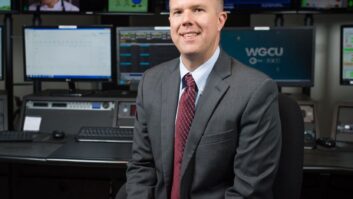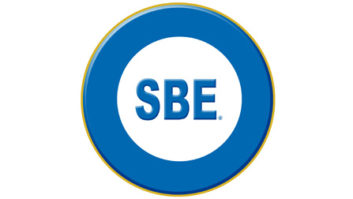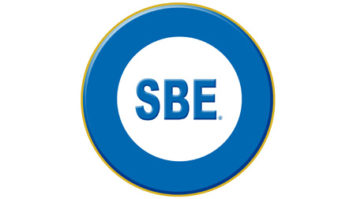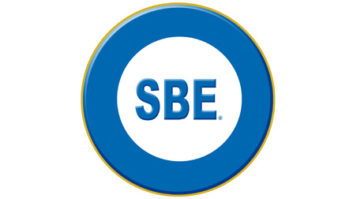The author is president/executive director of the Nebraska Broadcasters Association.
They came to Kearney, Neb., from radio stations all across the state. Stations in cities and towns like Crete, Hastings, Lincoln, Omaha, O’Neill, Scottsbluff, Sidney, Wayne and West Point. One even came from Cody, Wyo.
Twenty-four men and two women. Their job titles ran the gamut of radio station personnel: on-air talent, program director, operations manager, assistant engineer, IT manager, salesperson, owner and general manager. Most had more than one title, a couple carried them all.

Why did they come to Kearney for three days in June?
To learn about radio engineering.
And Larry Wilkins was just the man to teach them.
Wilkins is the director of the Alabama Broadcasters Association’s Engineering Academy. He is a fellow with the Society of Broadcast Engineers, holds a certification level of Professional Broadcast Engineer and serves on the National SBE Certification Committee.
As a Radio World reader you’re well aware of the shortage of qualified radio engineers and the lack of future engineers in the pipeline. You’re likely also aware of Larry Wilkins and his tireless efforts to teach engineering skills. Fittingly, Radio World bestowed its Excellence in Engineering Award on Wilkins a few months ago. His career achievements are remarkable.
The Nebraska Broadcasters Association’s first-ever “Radio Engineering Workshop” was put forth to strengthen the engineering skills of station staff that have shown an interest in doing more for their employers. Wilkins said, “I’ve found that a number of non-engineering station personnel already have some basic technical aptitude and interest. DJs, board ops, production people and others can pick up new skills that may help them troubleshoot and often fix some common problems.
“This particular workshop doesn’t generate SBE-certified RF engineers, but it does arm personnel and their stations with helpful knowledge and skills,” he said.
“For more challenging issues, perhaps now they can bridge a short-term solution before a contract engineer can arrive to implement a more permanent solution or better diagnose the extent of the problem.”
Wilkins’ outline for the NBA’s Radio Engineering Workshop was robust, yet presented in terms everyone could understand. Taking a detailed look at audio and RF transmission, Wilkins covered “everything audio” from the origination to the input of the RF transmission system. Microphones, mic placement, analog to digital, proper audio levels, processing and live audio mixing. AM and FM transmission systems, analog and digital transmitters, transmission lines and antennas, and … the care and proper feeding of all of that and more.
Wilkins also offered plenty of sage advice on good, fundamental engineering practices.
“Weekly transmitter site visits are so important. People have to know their facility by sight, sound and smell. When you arrive each week take a good look around — on the grounds and inside the building. Use your binoculars to take a careful look up and down the tower. Has anything been vandalized? Is anything missing? Does anything look out of place? When you open the door to the building, do things sound and smell the same as they did last week, or has something changed?
“Being as familiar with your transmitter site as you are your own home or office can often lead to early detection of a potentially critical problem. Failure to do so can be quite costly and disruptive to the station and the people you are licensed to serve.”
David Kelly, owner/operator of KTCH(FM)/KCTY(AM) radio in Wayne, Neb., is chairman of the NBA Board of Directors. Kelly said, “The NBA Board identified the acute engineering shortage several years ago and has been working to find practical ways to begin to fill that gap. Our geography creates unique demands on the sparse number of available contract engineers, especially in rural markets. We were greatly heartened at the registration numbers for our ‘first ever’ engineering workshop here in Nebraska.”
Noting the variety of job titles of those in attendance, Kelly added, “The goal was to reduce the anxiety level of station personnel confronted with an engineering challenge at their station and allow them to assist existing engineering resources through an understanding of how their station systems operates in order to more quickly restore a station in an off air emergency or experiencing an abnormal operating condition.
“The ABA Academy course, designed for beginners, covered not only RF and record-keeping but provided a concise update on current digital technology as it impacts broadcast — radio in particular. Larry Wilkins’ low key, conversational and well documented presentation style received praise from every attendee. This workshop should not be ignored by any state challenged by a shortage of engineering talent.”
Chad Moyer, a farm broadcaster at KTIC(AM/FM) in West Point, Neb., said, “I learned so much in this course, from transmitter operations and HD Radio to the proper way to set up a production room. There are many things I can take from this course to improve operations in our station.”
Larry Wilkins now has a fan club in Nebraska.
Will your state be next?





